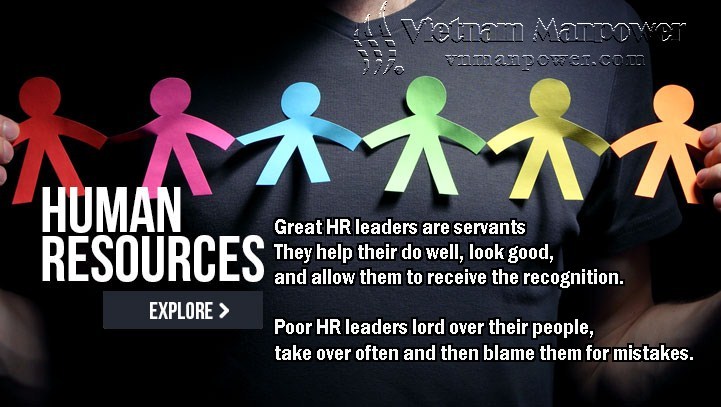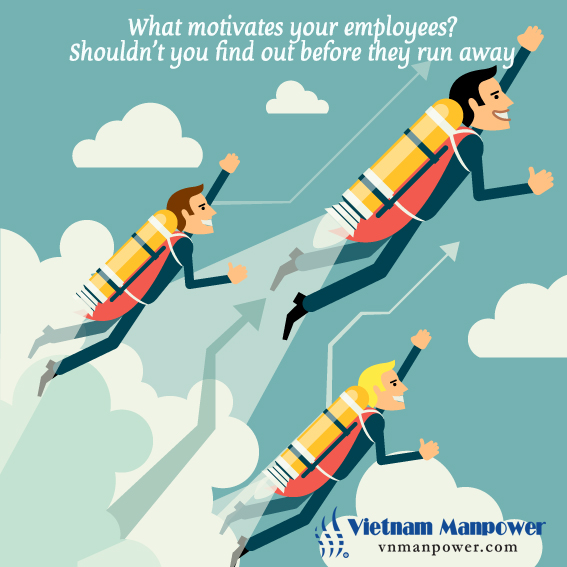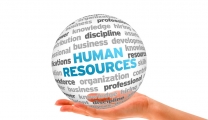The importance of human resources department was somewhat underrated in a long time. Not surprisingly, we used to think that the main function of the department is to support the workforce needs of the organization. However, as human capital is the most valuable asset of any company, the roles of HR professionals, especially HR leaders are more and more important to the development of any business. In HR leadership, there are some considerable differences from leadership in other functions. What makes a successful HR leader? Let's find out 10 most common traits that all effective HR leaders share in common:
1. Have functional knowledge and expertise

Not every leader can become a good HR leader. When it comes to fill an HR leadership role, a HR expert should be chosen instead of a manager who is new to the industry. Right HR competencies ensure the firm knowledge foundation as well as the initial trust from employees. Effective HR leaders always know the best practices as well as latest news in the industry.
2. Have a great insight about the business

Human resources department is not an independent unit in the organization. All organizational activities are related to HR. A good HR leader must understand clearly about the company, from its goals, missions, corporate culture to the products, services, customers, suppliers and how it generates revenue. Moreover, with great insight into the operations of each department, HR leaders in particular and HR professionals in general can better coordinate as well as avoid bad hiring decision resulted from the wrong skills set.
3. Have excellent people skills

There's no denying that the nature of HR is about people and relationships. A HR leader must be a great communicator, listener, mediator and negotiator. Yes, you don't get it wrong, I mean all-in-one HR leader. Great people skills mirror through daily practices, for example: An effective speech can boost employee morale, listening to employee feedback can help you keep the best talent, showing empathy to employees in personal crisis can align them with the business longer, etc.
4. Practice with integrity

Great HR leaders have to set for themselves high standards of integrity. They understand the strength of honesty and respect at workplace. They follow a high code of ethics in everything they do. They build an environment of fairness for win-win collaboration across the organization and be the credible place where everyone is willing to go and share their stories.
5. Think strategically and analytically

The lack of strategic prospective is one of the most common weaknesses of HR managers when compared to other functional managers. Nowadays, the organization demands HR leaders more than the role of support as in the past. HR leaders need to drive other HR professionals and the whole organization to overall success by aligning with every single business strategy. Moreover, HR leaders are required to be open-minded with good analytical thinking skills to deliver objective opinions and avoid unconscious biases.
6. Focus on performance and metrics

Whatever HR policy you plan and execute, the goals always include high workforce performance and efficiency. Thanks to various tools and software developed for HR professionals, almost all HR activities could be tracked, from attracting, screening, selecting candidates to engaging and retaining employees. Metrics are the input to help HR leaders to calculate, analyze and evaluate the current situation as well as make a suitable plan for HR operations in the coming time. Great HR practitioners are required to be good at numbers and logical thinking to make the most of these statistics. Furthermore, effective HR leaders have to automatically combine HR data with other business metrics in strategic planning to have the best result. They do understand that a larger number of employees doesn't necessarily mean a better return on investment (ROI).
7. Be tech-savvy

Nowadays, HR operations are changing day by day along with the continuing development of technology. The Internet helps connect people in different parts of the world without face-to-face meeting. Such concepts as online seminar, conference calls, online job portal, social recruiting, mobile recruiting, internal communication network, remote working, employee engagement tools are shaping today workplace. Effective HR leaders have to keep up with the ever-changing technology world and utilize these tools to make HR practices easier and easier.
8. Have solutions-oriented attitude

Anything might happen when people work together. It could be a conflict between two employees, a labor dispute, a disengaged workforce, a hiring mistake or a downsizing decision. When it comes to any problem related to human capital, great HR leaders have to pay attention immediately to find the best win-win solutions for all stakeholders. They always focus on the root causes with an objective attitude and critical thinking. Moreover, they need to have the ability to predict when getting some initial signs and have preventative measures in order to minimize the bad outcomes.
9. Inspire and motivate people

Getting to know employees' needs is the very first step in motivation process. Successful HR managers understand the importance of job satisfaction in each employee's work performance. They know what benefits really matter to the staff and what they expect from their managers and working environment. Great HR leaders always lead by example and inspire other people by their integrity. They try to help poor performers before making any heart-broken firing decision and allow employees to make mistakes because nobody is perfect. They respect the differences in race, age, culture and find the right approach to drive each group and individual to the best results.
10. Keep learning and encourage innovation

All successful HR leaders are great change leaders. They do understand that the more HR knowledge and competencies they have, the more achievements they can gain in this field. Learning is not to show up excellent degrees and certificates. Good HR managers commit to an enduring learning to turn the knowledge into practice, which can help not only HR members but also the whole organization benefit from timely support. Besides, they always keep up with the latest trends in the industry and encourage new ideas to contribute to the overall success.












Replies to This Discussion